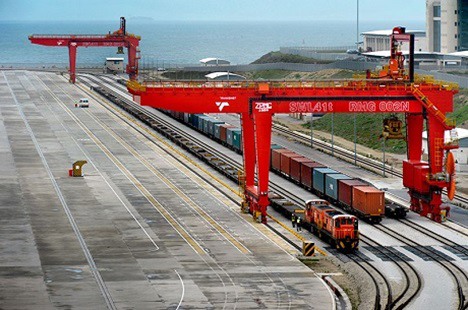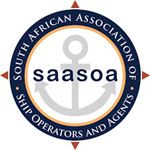Vessels that are avoiding the dangers of the Red Sea by rerouting around the Cape of Good Hope (a voyage 5,000km longer) should pack extra fuel, because they won’t be refueling at Algoa Bay, seaward from Port Elizabeth and Ngqura, as they’ve been used to doing.
Algoa Bay is the only South African locality sheltered enough to allow bunkering without high risk of oil spills.
“There was a tremendous amount of bunkering going on in Algoa Bay with around 150 vessels a month,” says Peter Besnard, CEO of the South African Association of Ship Operators and Agents. He notes that a number of enterprises in Algoa Bay and Port Elizabeth had sprung up around the off port limit bunkering.
No-one is able to bunker now because two of the three offshore bunkering services are being investigated by the country’s tax authorities, while fuel at the remaining offshore bunker has become scarce.
Now shipping lines’ top options for bunkering are Walvis Bay (Namibia) or Port Louis (Mauritius), taking “much-needed” business away from South Africa.
In September News 24 reported that four bunker barges and an oil drilling ship, linked to Minerva Marine Bunkering Services and TFG Marine, both of which are Singaporean-owned, had been detained earlier in the month for allegedly contravening tax laws. Nearly 6,200 vessels had conducted bunkering operations there since 2021, the report added.
South African companies have not been able to obtain permits to do the same offshore which, industry sources say, creates a degree of rancour among local industry.
“They can’t get in and out of port to discharge or load or to refuel”
Ideally, Andy Connell, shipping expert, remarks, Ngqura would have acted in the role for which it was originally designed: as a transshipment hub, where vessels could drop their cargo and turn back, instead of having to round the African continent. Port Louis in Mauritius has now taken a lot of the weight off Ngqura, he remarks.
 Port of Ngqura, designed as a transshipment hub
Port of Ngqura, designed as a transshipment hub
He also points out how much money South African ports are losing through not capitalizing on the current situation: daily berthing fees of around US$35,000 per port call for a large vessel, for example, and container terminal handling fees.
“Vessels aren’t calling at South Africa because they can’t get in and out of port to discharge or load or to refuel. The waiting time off port limits, to get a berth is too long. Only those with enough fuel are coming around,” says Andy Connell, shipping expert. “South Africa gets absolutely no benefit from it whatsoever. They’re not coming in because they don’t know if they’re coming out again.”
Africa Ports & Ships quotes analyst Alphaliner’s calculation that a diversion around the Cape of Good Hope on a voyage from Shanghai to Rotterdam at a speed of 18 knots would increase the transit time from 25 to 33 days.
A joint declaration from 44 countries aligned with the United States condemning the attacks in the Red Sea, where nearly 15 percent of global seaborne trade passes through, noted that the route around the Cape of Good Hope would be adding significant cost and weeks of delay to the delivery of goods, and ultimately jeopardizing the movement of critical food, fuel, and humanitarian assistance throughout the world.
According to BusinessKorea, the fuel needed to reroute is costing shipping lines up to US$2 million more per vessel.
 For more information:
For more information:
Peter Besnard
South African Association of Ship Operators and Agents
Tel: +27 31 266 1384 / 85
Email: peter@saasoa.co.za
https://www.saasoa.co.za/
